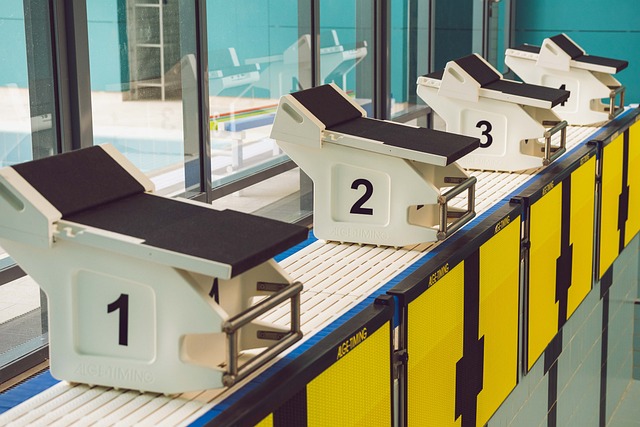Trauma-informed therapy revolutionizes healing by addressing root causes rather than symptoms. Integrating evidence-based methods like cognitive-behavioral therapy (CBT), mindfulness, art therapy, yoga, and somatic therapy creates a tailored, supportive environment. The goal is emotional processing, self-restoration, and developing adaptive coping strategies for holistic wellness. Mindfulness, meditation, yoga, and art therapy facilitate present-moment awareness, tension release, and creative expression of emotions. Integrative wellness therapy offers a unique approach to comprehensive healing, addressing mind, body, and spirit through art, yoga, mindfulness, and somatic practices.
“Uncover the power of trauma-informed therapy for comprehensive healing. This holistic approach transforms lives by addressing the root causes of distress. Our article guides you through evidence-based methods like cognitive-behavioral, mindfulness, and somatic therapies, offering a deep dive into creative practices such as integrative wellness, art, and yoga therapy. Discover techniques to cultivate emotional resilience through meditation and somatic techniques, promoting lasting healing and enhanced well-being.”
- Understanding Trauma-Informed Therapy: A Holistic Approach to Wellness
- Evidence-Based Methods: Cognitive-Behavioral, Mindfulness, and Somatic Therapies
- Creative Healing Practices: Integrative Wellness, Art, and Yoga Therapy
- Cultivating Emotional Resilience: Meditation and Somatic Techniques for Deep Healing
Understanding Trauma-Informed Therapy: A Holistic Approach to Wellness

Trauma-informed therapy represents a revolutionary approach to comprehensive healing, addressing not just symptoms but the root causes of distress. This holistic method recognizes that traumatic experiences can have profound and lasting effects on an individual’s mental, emotional, and physical well-being. By integrating various therapeutic modalities such as cognitive-behavioral therapy (CBT), mindfulness practices, art therapy, yoga, and somatic therapy, it offers a tailored and supportive environment for healing.
The goal is not just to manage symptoms but to facilitate emotional processing, restore sense of self, and develop adaptive coping strategies. For instance, meditation for holistic wellness can help individuals cultivate present-moment awareness, while yoga therapy provides physical outlets for tension release. Art therapy for healing allows expression of difficult emotions and experiences in a creative safe space. This integrative wellness therapy empowers individuals to reclaim their lives, fostering resilience and enhancing overall well-being.
Evidence-Based Methods: Cognitive-Behavioral, Mindfulness, and Somatic Therapies

In the realm of trauma-informed therapy, several evidence-based methods have proven effective in promoting comprehensive healing and holistic wellness. Cognitive-Behavioral Therapy (CBT) is a well-established approach that focuses on identifying and changing negative thought patterns and behaviors associated with traumatic experiences. By challenging unhelpful cognitive distortions, CBT empowers individuals to develop healthier coping strategies and improve their overall emotional well-being.
Mindfulness therapy and somatic therapy are also integral components of integrative wellness therapy. Mindfulness encourages individuals to cultivate present-moment awareness, helping them to regulate emotions and reduce the impact of traumatic memories. Yoga therapy and meditation for holistic wellness further enhance this process by promoting relaxation and stress reduction. Art therapy for healing allows people to express themselves creatively, providing an alternative means of processing emotions and trauma. These integrative approaches work synergistically to address the mind, body, and spirit, fostering profound emotional healing.
Creative Healing Practices: Integrative Wellness, Art, and Yoga Therapy

In the pursuit of comprehensive healing, Creative Healing Practices offer a unique and powerful approach to trauma-informed therapy. Integrative Wellness combines various therapeutic modalities such as art therapy for healing, yoga therapy, and mindfulness therapy to address the mind, body, and spirit as a whole. This holistic perspective recognizes that emotional healing therapy often involves more than just cognitive-behavioral therapy techniques; it encompasses somatic therapy practices that help individuals reconnect with their bodies and release trapped emotions.
Art therapy encourages self-expression through creative mediums, fostering a sense of safety and allowing clients to explore and process complex feelings. Yoga therapy promotes physical relaxation and mental clarity, while meditation for holistic wellness calms the mind and enhances overall well-being. These practices complement traditional cognitive-behavioral therapy, providing alternative pathways for healing and offering a more nuanced understanding of an individual’s trauma experience.
Cultivating Emotional Resilience: Meditation and Somatic Techniques for Deep Healing

Cultivating Emotional Resilience is a cornerstone of trauma-informed therapy, focusing on holistic wellness and deep emotional healing. Mindfulness therapy, including meditation for holistic wellness, teaches individuals to be present with their emotions without judgment. This practice strengthens the mind-body connection, enabling people to recognize and regulate their feelings more effectively. Integrative wellness therapy often incorporates cognitive-behavioral techniques to challenge negative thought patterns that may have developed as a result of trauma. By combining this with art therapy for healing and yoga therapy, individuals can explore emotional expression through creative outlets and physical movement, fostering a sense of safety and empowerment.
Somatic techniques play a significant role in emotional healing therapy. These methods help clients connect with their bodies’ inherent wisdom, allowing them to process and release trapped emotions. Techniques such as deep breathing exercises and progressive muscle relaxation facilitate a state of calm, making it easier to access and heal from past traumas. This holistic approach ensures that every aspect of an individual’s well-being is considered, promoting comprehensive healing and resilience in the face of life’s challenges.
Trauma-informed therapy offers a comprehensive and holistic approach to wellness, addressing the root causes of trauma through evidence-based methods like cognitive-behavioral therapy, mindfulness practices, and somatic therapies. Integrative wellness therapy, including art and yoga, provides creative outlets for healing. By cultivating emotional resilience through meditation and advanced somatic techniques, individuals can achieve deep and lasting recovery. Adopting these therapeutic approaches allows for a multifaceted journey towards holistic health and emotional well-being.
